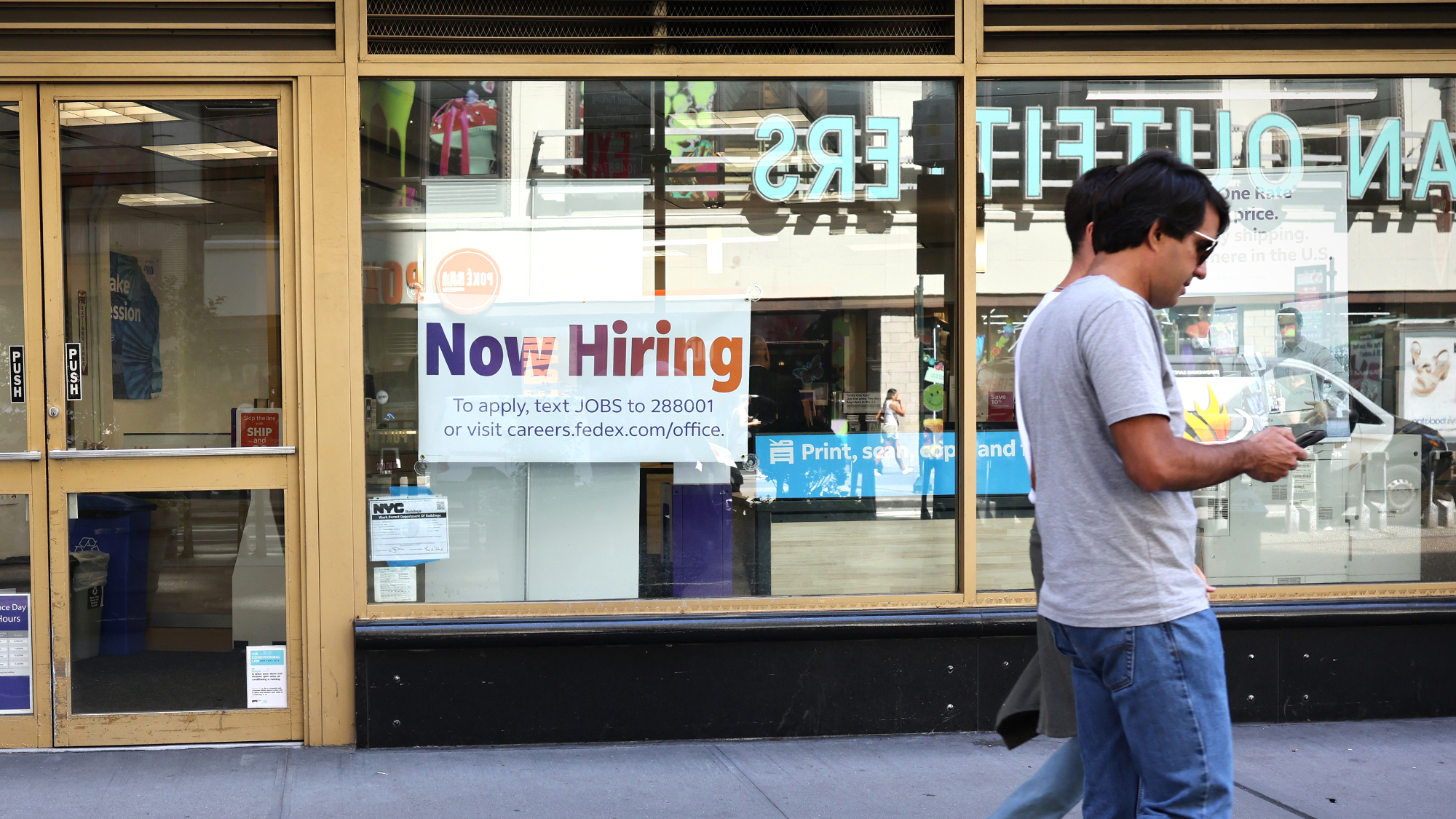US job growth revised downward
The US economy added 818,000 fewer jobs than first reported


A free daily email with the biggest news stories of the day – and the best features from TheWeek.com
You are now subscribed
Your newsletter sign-up was successful
What happened
The U.S. economy added 818,000 fewer jobs than originally reported in the 12 months ending in March, the Bureau of Labor Statistics said. The preliminary downward adjustment — to 174,000 new jobs a month from 242,000 — was part of the Labor Department's annual revision process, using more accurate state unemployment data.
Who said what
The weaker job growth numbers give fresh "ammunition to critics who suggest the Federal Reserve may be late to cutting interest rates," focusing too much on "curbing inflation, to the detriment of the labor market," The Washington Post said. Even with the new numbers, The New York Times said, "the big picture remains relatively unchanged: Job growth is slowing, but not collapsing. The unemployment rate is rising, but layoffs remain low."
"This doesn’t challenge the idea we're still in an expansion," but it signals more muted monthly job growth and puts "extra pressure on the Fed to cut rates" in September, Robert Frick, an economist at the Navy Federal Credit Union, said to The Associated Press.
What next?
Fed Chair Jerome Powell may give hints about next month's expected rate cut when he speaks in Jackson Hole, Wyoming, on Friday. The final job growth numbers for the period will be released in February.
The Week
Escape your echo chamber. Get the facts behind the news, plus analysis from multiple perspectives.

Sign up for The Week's Free Newsletters
From our morning news briefing to a weekly Good News Newsletter, get the best of The Week delivered directly to your inbox.
From our morning news briefing to a weekly Good News Newsletter, get the best of The Week delivered directly to your inbox.
A free daily email with the biggest news stories of the day – and the best features from TheWeek.com
Peter has worked as a news and culture writer and editor at The Week since the site's launch in 2008. He covers politics, world affairs, religion and cultural currents. His journalism career began as a copy editor at a financial newswire and has included editorial positions at The New York Times Magazine, Facts on File, and Oregon State University.
-
 At least 8 dead in California’s deadliest avalanche
At least 8 dead in California’s deadliest avalancheSpeed Read The avalanche near Lake Tahoe was the deadliest in modern California history and the worst in the US since 1981
-
 Political cartoons for February 19
Political cartoons for February 19Cartoons Thursday’s political cartoons include a suspicious package, a piece of the cake, and more
-
 The Gallivant: style and charm steps from Camber Sands
The Gallivant: style and charm steps from Camber SandsThe Week Recommends Nestled behind the dunes, this luxury hotel is a great place to hunker down and get cosy
-
 Powell: The Fed’s last hope?
Powell: The Fed’s last hope?Feature Federal Reserve Chairman Jerome Powell fights back against President Trump's claims
-
 The end for central bank independence?
The end for central bank independence?The Explainer Trump’s war on the US Federal Reserve comes at a moment of global weakening in central bank authority
-
 Lucasfilm passes ‘Star Wars’ torch to new leaders
Lucasfilm passes ‘Star Wars’ torch to new leadersSpeed Read Kathleen Kennedy is stepping down after 14 years at the company
-
 Will Trump’s 10% credit card rate limit actually help consumers?
Will Trump’s 10% credit card rate limit actually help consumers?Today's Big Question Banks say they would pull back on credit
-
 How prediction markets have spread to politics
How prediction markets have spread to politicsThe explainer Everything’s a gamble
-
 What will the US economy look like in 2026?
What will the US economy look like in 2026?Today’s Big Question Wall Street is bullish, but uncertain
-
 Unemployment rate ticks up amid fall job losses
Unemployment rate ticks up amid fall job lossesSpeed Read Data released by the Commerce Department indicates ‘one of the weakest American labor markets in years’
-
 Who will be the next Fed chair?
Who will be the next Fed chair?Today's Big Question Kevin Hassett appears to be Trump’s pick
